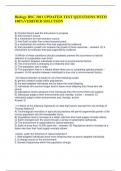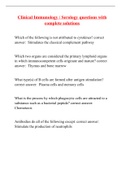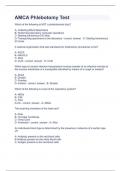TERRORISM, ORGANISED AND CORPORATE CRIME
Academic year 2022/23
Organised crime: definitions, research
and theoretical perspectives
Introduction
Compulsory Readings for this class:
o Paoli, L., & Vander Beken, T. (2014). Organised crime: A contested concept. In
L. Paoli (Ed.), The Oxford handbook of organised crime (pp. 13-31). New York:
Oxford University Press.
o Kleemans, E. R. (2014). Theoretical perspectives on organised crime. In L. Paoli
(Ed.), The Oxford handbook of organised crime (pp. 32-52). New York: Oxford
University Press.
Study Questions:
o What have been the main definitions of OC?
o What are the main theoretical perspectives on OC?
o What are the main research methods?
Discussion Questions:
o Which definition of OC and theoretical perspective sounds most convincing to
you and why?
o Which of them seems to be most applicable to your country of origin?
o Which research methods sound most promising and why?
The bumpy policy career of organised crime
Until the 1980s, OC was considered a problem in a few countries
o Mainly the US and Italy
From 1989 – OC perceived instead as a worldwide threat/ European threat
o It starts as an American concept, and for a long time, the interest and academic
commentary on this concept were American (especially a heated topic in the
60s – e.g. Valachi).
The topic of (Transnational) OC is used as a “Trojan horse” for policy change.
o Both at the national and international levels
o Peaked with the 2000s Convention on Organised Crime
o Because of OC being perceived as a Transnational problem perceived need
for international/transnational solutions Expansion of EU competence in
Justice and Home Affairs
o The Trojan horse was partially superseded by terrorism after 9/11
After 2009 – a decline of Organised Crime within the EU debates more talks about
Serious Crime
o We are talking about a decline in policy, not a decline in the phenomenon itself
o But still no “end of organised crime in EU” (Dorn, 2009)
OC is still present in many policy documents – e.g. the Serious Organised
Crime Threat Assessment Report (SOCTA) by Europol
9
, TERRORISM, ORGANISED AND CORPORATE CRIME
Academic year 2022/23
The concept – ambiguous, contested
Many partially contradictory meanings have been attached to expression since the
early 20th Century – to main ways of understanding OC.
o Two rivalling notions – Who (OC as a set of criminal organisations/actors ) vs
What (OC as a set of criminal profit-making activities) (Smith, 1991)
Smith was the first to conceptualise OC in terms of “Who” and “What”.
o Dichotomy
The territorial scope of OC has also changed
o American concept developing – started as a local concept in the US in the 1920s
because of the prohibition on the consumption and production of alcohol. OC
was employed to describe the criminal activities of specific individuals involved
with smuggling and racketeering. Many had connections with the upper world,
too – politicians and other officials.
o In the 1990s, the Transnational dimension of OC was emphasised
Was this a policy trick?
o It became a concept of profit-making crimes.
The policy and scientific legitimacy of OC has also varied
o Long considered “not serious” and a “topic of media conspiracy.”
o Then in the 1990s – the boom of OC.
OC AS A RORSCHACH BLOT (LEVI, 2002)
The idea of everybody seeing a different thing in OC (as they would see other things in
the ink)
Always be careful when reading about OC- whether they are referring to the
organisation or the crime.
Historical and conceptual overview
OC AS AN AMERICAN CONCEPT
An expression coined in the late 19th century
o No fixed meaning
Discussed and defined during the 1920s and 1930s (the time of Prohibition)
o Frederick Trasher’s The Gang (1927)
o John Landesco’s Organized Crime in Chicago (1929)
Wickersham’s National Commission on Law Observance and Enforcement (1929-31) -
The focus was on Local activities (Racketeering – extorsion & other profit-making
activities – e.g. selling alcohol)
OC = MAFIA = BUREAUCRACY = ALIEN CONSPIRACY (“WHO”)
After WW2, OC was identified with a well-structured criminal organisation,
specifically Mafia
o The Italian Mafia was presented as the dominant actor
o Kefauver Senate Investigating Committee (1950-51)
o Senate Permanent Subcommittee on Investigations (1963)- another revival of
the topic
10
Academic year 2022/23
Organised crime: definitions, research
and theoretical perspectives
Introduction
Compulsory Readings for this class:
o Paoli, L., & Vander Beken, T. (2014). Organised crime: A contested concept. In
L. Paoli (Ed.), The Oxford handbook of organised crime (pp. 13-31). New York:
Oxford University Press.
o Kleemans, E. R. (2014). Theoretical perspectives on organised crime. In L. Paoli
(Ed.), The Oxford handbook of organised crime (pp. 32-52). New York: Oxford
University Press.
Study Questions:
o What have been the main definitions of OC?
o What are the main theoretical perspectives on OC?
o What are the main research methods?
Discussion Questions:
o Which definition of OC and theoretical perspective sounds most convincing to
you and why?
o Which of them seems to be most applicable to your country of origin?
o Which research methods sound most promising and why?
The bumpy policy career of organised crime
Until the 1980s, OC was considered a problem in a few countries
o Mainly the US and Italy
From 1989 – OC perceived instead as a worldwide threat/ European threat
o It starts as an American concept, and for a long time, the interest and academic
commentary on this concept were American (especially a heated topic in the
60s – e.g. Valachi).
The topic of (Transnational) OC is used as a “Trojan horse” for policy change.
o Both at the national and international levels
o Peaked with the 2000s Convention on Organised Crime
o Because of OC being perceived as a Transnational problem perceived need
for international/transnational solutions Expansion of EU competence in
Justice and Home Affairs
o The Trojan horse was partially superseded by terrorism after 9/11
After 2009 – a decline of Organised Crime within the EU debates more talks about
Serious Crime
o We are talking about a decline in policy, not a decline in the phenomenon itself
o But still no “end of organised crime in EU” (Dorn, 2009)
OC is still present in many policy documents – e.g. the Serious Organised
Crime Threat Assessment Report (SOCTA) by Europol
9
, TERRORISM, ORGANISED AND CORPORATE CRIME
Academic year 2022/23
The concept – ambiguous, contested
Many partially contradictory meanings have been attached to expression since the
early 20th Century – to main ways of understanding OC.
o Two rivalling notions – Who (OC as a set of criminal organisations/actors ) vs
What (OC as a set of criminal profit-making activities) (Smith, 1991)
Smith was the first to conceptualise OC in terms of “Who” and “What”.
o Dichotomy
The territorial scope of OC has also changed
o American concept developing – started as a local concept in the US in the 1920s
because of the prohibition on the consumption and production of alcohol. OC
was employed to describe the criminal activities of specific individuals involved
with smuggling and racketeering. Many had connections with the upper world,
too – politicians and other officials.
o In the 1990s, the Transnational dimension of OC was emphasised
Was this a policy trick?
o It became a concept of profit-making crimes.
The policy and scientific legitimacy of OC has also varied
o Long considered “not serious” and a “topic of media conspiracy.”
o Then in the 1990s – the boom of OC.
OC AS A RORSCHACH BLOT (LEVI, 2002)
The idea of everybody seeing a different thing in OC (as they would see other things in
the ink)
Always be careful when reading about OC- whether they are referring to the
organisation or the crime.
Historical and conceptual overview
OC AS AN AMERICAN CONCEPT
An expression coined in the late 19th century
o No fixed meaning
Discussed and defined during the 1920s and 1930s (the time of Prohibition)
o Frederick Trasher’s The Gang (1927)
o John Landesco’s Organized Crime in Chicago (1929)
Wickersham’s National Commission on Law Observance and Enforcement (1929-31) -
The focus was on Local activities (Racketeering – extorsion & other profit-making
activities – e.g. selling alcohol)
OC = MAFIA = BUREAUCRACY = ALIEN CONSPIRACY (“WHO”)
After WW2, OC was identified with a well-structured criminal organisation,
specifically Mafia
o The Italian Mafia was presented as the dominant actor
o Kefauver Senate Investigating Committee (1950-51)
o Senate Permanent Subcommittee on Investigations (1963)- another revival of
the topic
10









